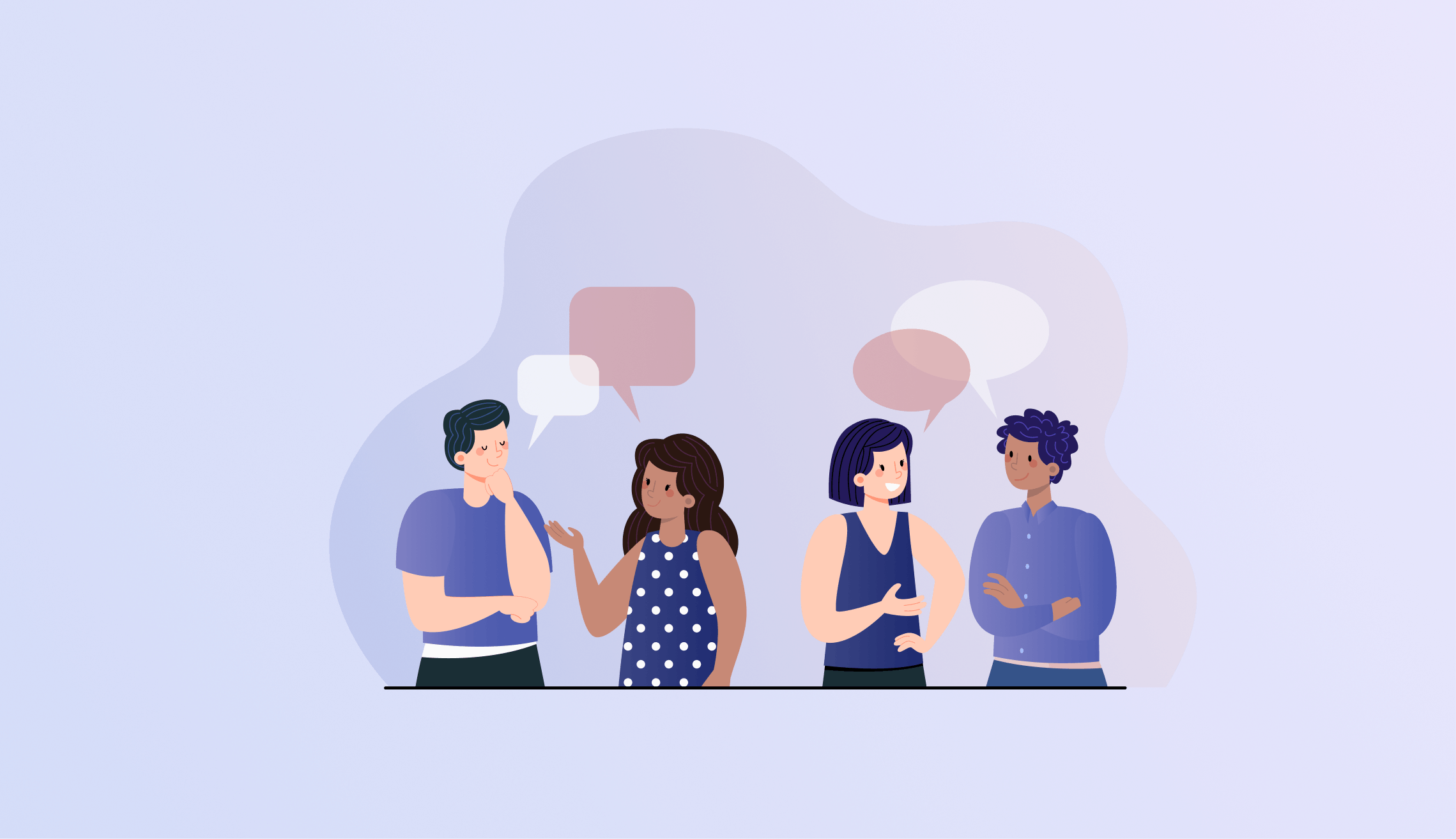Social Skills: Starting a Conversation

You can personalize the Social Skills: Starting a Conversation resource by downloading it HERE, and adding your own responses, or continue to view it below.
Starting a conversation, especially with a stranger, can be scary for anyone. We may wonder what the other person is going to think of us, worry that they’re going to judge us, or we may not know what to say. Nonetheless, starting conversations is the first step in building new connections, friendships, and romantic relationships. This resource provides a brief layout of how to start a conversation, some general tips, and includes a self-reflection on current conversation skills.
Reflecting on Current Skills
To start, we will reflect on some questions around our current social skills to get a better understanding of where we’re at and how to move forward:
- What kinds of social interactions are most challenging for you, and why?
- What are some common social situations or interactions that you avoid?
- What have others said about your social interactions in the past?
- Why do you want to improve your social skills?
- What might be helpful in improving your social skills?
Setting an Intention
An intention is what we aim to accomplish or achieve in a situation. An intention can guide our thoughts and actions, and can even influence our non-verbal communication. So before we start a conversation, it is best to be clear about our intention.


The ARE Method
Dr. Carol Flemming is a specialist in communication, and developed the ARE method, which stands for Anchor, Reveal, and Encourage. The ARE method is designed to provide a simple framework for starting conversations, and begins with “small talk”. Though small talk is often superficial, it has been proven to be an entry point for deeper connections.
Anchor
Start the conversation about a shared environment or interest. This can include something you’re experiencing or doing together; it is usually something “surface level” that creates an anchor for a more significant conversation


Reveal
Give some brief personal background information or share what brought you to the place you are both at. Giving some personal information can start to build trust, and usually builds on the anchor you established


Encourage
Invite the other person to provide some personal information by asking questions. It can be helpful to ask open ended question that continue to build on the anchor and information that you revealed


General Tips for Conversations
- Remember that it’s okay to “fail” as you begin to practice new skills
- Rather than trying to be interesting, be interested in what the other person says
- Don’t multitask during conversation (e.g. put electronics or other activities down)
- Go with the flow of the conversation; it’s okay to get distracted by thoughts, but always return your focus when you notice you’ve been
- distracted
- Try not to focus on a response in your head, and instead, listen to understand
- Remember the phrase, “it’s not about you”; most of the time others are more concerned about themselves, rather than judging you
Practicing the ARE Method
By taking some time to reflect on and practice the ARE Method before a conversation, we can feel a little more prepared and ease any anxiety we may feel. Think of a potential situation where you can practice the ARE Method to start a conversation with someone, and use the format below or add your own responses to the editable PDF of this resource HERE. Hint: describe the time, place, and person if you already have someone in mind.

Additional Resources
Call 911 if you’re having a
mental health emergency
Text Home to 741-741 if you're in emotional
distress and need immediate support
Call or text 988 Suicide &
Crisis Lifeline. Chat service
is available at 988lifeline.org.